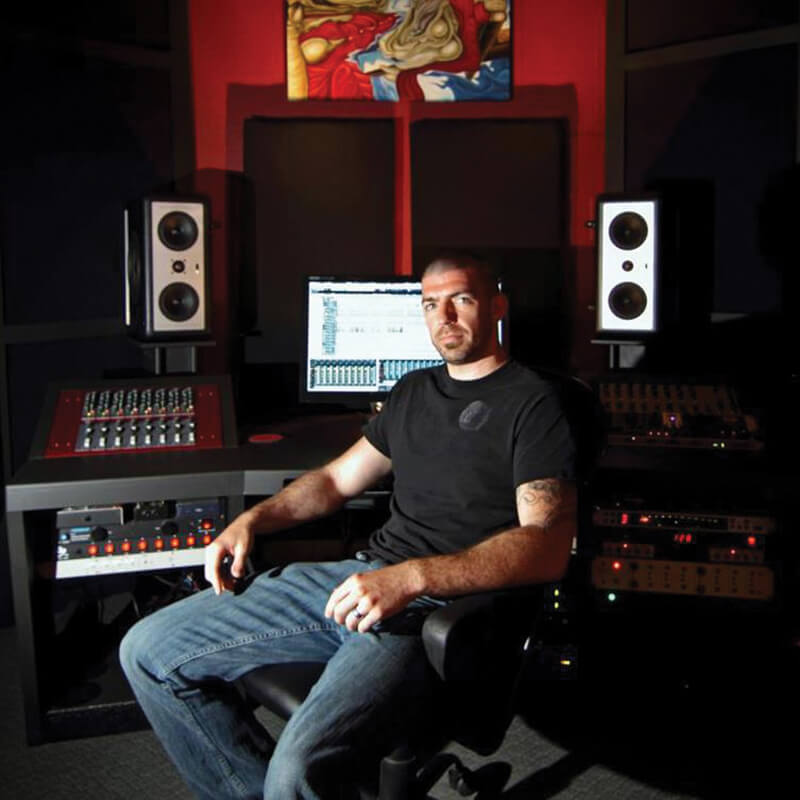
Music and technology are not exactly strange bedfellows – after all, instruments are a type of technology themselves, and innovations in the last century or so has made it possible for creatives from all disciplines to capture their ideas faster and share them with bigger audiences.
The last couple of decades have seen the way we record sound, and what we’re able to do with it after, evolve dramatically. While some will argue in favor of analog over digital recording, certainly, cutting tape with razor blades and splicing it back together with adhesive is something of a relic.
Now, thanks to digital, we’re able to quickly nip and tuck recordings, arrange songs in seconds, and write entire albums using only virtual instruments. But, with all of the time stretching, autotuning, pitch shifting, and quantizing going on, one has to wonder if recorded music is becoming a little too perfect.
“There was definitely a period in the mid 2000s when music sounded overly edited,” says producer and owner of Flatline Audio, Dave Otero. “[Recording] technology has gone through a large arch of possibilities, and the increased affordability of these options has seen music change in reactive ways.”
Otero, who has produced a number of benchmark metal albums from the likes of Cattle Decapitation, Cephalic Carnage, Archspire, and others, says that while the increased horsepower in recording tech allows bands to innovate and helps producers provide a more polished product, there’s also a flipside: “Technology has [also made some bands] lazy – they started coming into my studio a little less prepared to record, thinking they could just fix mistakes later.”

Dave Otero
When “Fixing It in the Mix” Goes Wrong
“The mindset has shifted to people expecting there to be trickery and ‘studio magic’ from the get-go,” says Berlin-based producer and Defeated Sanity guitarist Tom Geldschläger. “The thought of five people playing together in a room with no overdubs is completely alien to many metal musicians. I feel this leads to an over-reliance on studio technology.”
Geldschläger adds that the “just fix it in the mix” mentality is one of the main reasons that modern music, especially Hard Rock and Heavy Metal, is starting to sound inauthentic. “When I listen to what gets released nowadays, maybe one band in ten sounds even remotely like human beings.”
Although the use of studio tech can be used to refine imperfect performances, Geldschläger and Otero both agree that a primary reason for its overuse boils down to musicians simply being unprepared to record in the first place.
“I’m always surprised at the fact that a lot of people are going into the studio not being able to play their own songs from start to finish,” confesses Geldschläger.
“These days, it’s more common than not that bands have never even played their parts together,” Otero adds. “People live across the world from each other and share files, and may have never played in the same room — that’s not an optimal way to record.”

Tom Geldschläger
The Solution
“Pretend these tools don’t exist,” Otero says. “Rehearse and prepare as if the recording depended on you for the whole song.”
Geldschläger also explains that bands should “play together as often as possible and work on [their] overall performance, instead of leaving it up to the engineer to ‘make it work.’ An over-edited and lifeless performance as a result of insufficient preparation will always drag the overall product down, no matter how good the mix is.”
But responsibility doesn’t lie solely with the band – producers and engineers have to step up and clearly communicate their expectations.
“I have a chat with bands the first time I work with them. I discuss what I expect them to be able to do,” Otero says. “And when I’ve worked with a band multiple times, I’ll give them feedback based on the last session. For example, one band I worked with recorded guitar solos, but never bothered to learn to play them. The result was really sterile recording. So, I said, ‘next time, you have to be able to play your solos all the way through, without looking at your music.’”
Adds Geldschläger: “I think both [producer and band] have to respect each other and value what the other brings to the table…The best and most rewarding projects for me have been those where artist, producer, and engineers were working together with a shared vision.”
What about bands that record on their own – how can they avoid over editing their music?
“Try and consider your performance and engineering as two separate roles,” Otero suggests. “If you’re doing it yourself, you want your notes to be clean and your set to be clean, but you also need to be able to zoom out and listen to the whole thing in context, and make sure it sounds cohesive.”
Otero also adds that “when you’re recording and you’re trying to get the perfect take, you’re hypersensitive to everything, and the smallest mistake will be amplified. You have to remember, however, that the people listening to your music aren’t all musicians or producers – they’re not going to hear all of the things that producers are going to hear.”
I miss hearing singers gasp for breath in between verses and sweaty palms sweep up and down guitar necks – is there still room for quirks like these on modern recordings?
“Yes, of course. You’re always going to want those quirks,” Otero says. “Those moments where the high hat stays open just a little longer, or the guitar player bends a note a little longer… those sorts of things are special moments.”
“Personally, I try to keep the performances as pure as possible and only use editing, samples or pitch-correction when it’s really necessary or the client is insisting on it,” Geldschläger says. “What tends to happen if you use too much studio magic too often is that everything ends up sounding the same, but it’s precisely our little quirks and inconsistencies as human beings that make a record sound unique and timeless.”
Tools of the Trade
When it comes to “gearing up” for recording, both Otero and Geldschläger cite Cubase as a preferred DAW:
“I exclusively use Steinberg Cubase and Wavelab on all my projects, alongside some hardware gear like DAW controllers, pre-amps and interfaces,” says Geldschläger. “I worked with most other DAWs in different studios over the years, but Cubase is where I feel most ‘at home’ and have the fastest workflow.”
“All of the professional tools out there…they’re all pretty standard. But, whenever I can, I stay in Cubase,” Otero adds.
And as far as plug-ins, go, “I pretty much go for whatever gets the job done, no matter whether that is stuff that I paid for (like the Waves, Fabfilter or Slate plug-in suites, which I use daily) or free tools like Nova or SlickEQ,” Geldschläger says. “I will spend a lot of time trying to get the cleanest, biggest-sounding and emotionally engaging mix that I can, usually using tons of automation, active EQ and side-chain compression to make sure everything has space in the mix and every detail is audible. I’ve never been big on high-end recording gear – it’s nice to have it, but in my personal experience, a great-sounding product depends much more on the arrangement and on the mix than on fancy preamps and expensive microphones.”
